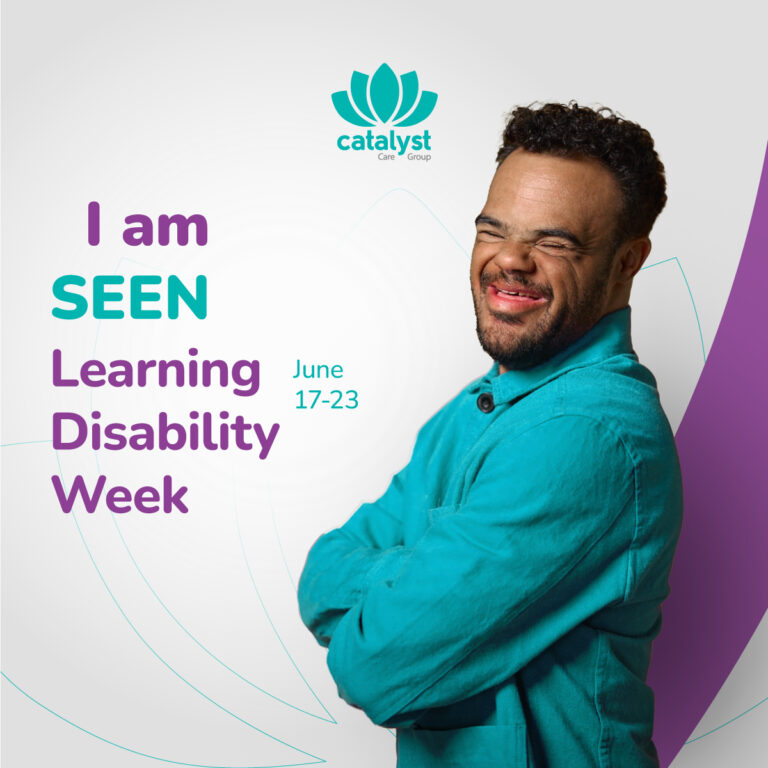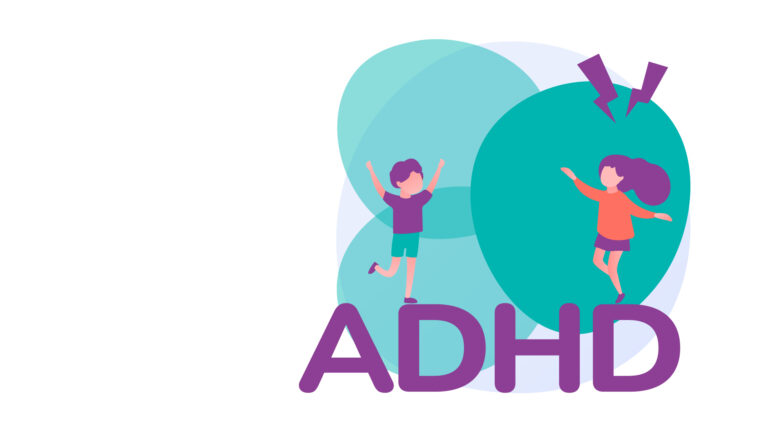PROACT-SCIPr-UK® training is part of the Positive Behaviour Support (PBS) practices developed to support people with diverse needs and behaviours that challenge to lead an independent and fulfilling life in the community.
Based on the values of the whole-person approach, the PROACT-SCIPr-UK® methodology aims to identify and prevent all the possible triggers that could stimulate behaviours that challenge in children, young people and adults with additional care needs.
Introduction to PROACT-SCIPr-UK® Methodology
PROACT-SCIPr-UK® framework is based on positive behaviour research and practices that created remarkable outcomes and minimised the use of physical interventions, designed to support autistic people, people with a learning disability and mental health needs.
At Catalyst Care Group, we provide a proactive and therapeutic training model of PROACT-SCIPr-UK® for professionals and carers of children and adults with diverse needs and behaviours of concern. Our training programme is based on the real-life practices of the Loddon School, developed to empower staff, families and carers to provide a whole person approach tailored to each person’s unique needs.
We uphold certifications to provide in-house training of the highest standards.
Goals of PROACT-SCIPr-UK® Methodology
The primary goal of the PROACT-SCIPr-UK® program is to facilitate the safe and active participation of individuals in the community while minimising the use of restrictive practices. The Positive Behaviour Support (PBS) approach involves early identification of distress through functional communication to understand people’s needs and responses.
In implementing the PROACT-SCIPr-UK® methodology, our field experts provide support according to guidelines derived from Loddon training, which include:
- Prevention by identifying triggers
- Early intervention strategies
- Building strong, trusting relationships
- Developing comprehensive Positive Behaviour Support (PBS) plans
- Tailoring PBS plans to individual needs
- Reactive management through supportive physical interventions or strategies within the legal framework
The core principle of the PROACT-SCIPr-UK® methodology is recognizing that each individual has unique needs and desires that persist from childhood into adulthood. Consequently, the proactive approach of Loddon training may involve educational consultants, parents, healthcare providers, and organisations that support adults.

Goal 1: Ensuring Safety and Well-being
PROACT-SCIPr-UK® aims to create an environment that prioritises safety and actively promotes the overall well-being of people through respectful, supportive, and ethical care practices.
- Create a Safe Environment- Provide caregivers with the knowledge and skills to establish and maintain a safe environment, minimising the risk of harm to both people and staff.
- Prevent Crisis Situations- Focus on proactive strategies to identify and address potential triggers before they escalate into crisis situations, promoting a calm and comfortable atmosphere.
- Use De-escalation Techniques- Train caregivers in effective de-escalation techniques to manage challenging behaviours, reducing the need for physical interventions.
- Improve Emotional and Psychological Well-being- Encourage practices that support people’s emotional and psychological well-being, instilling a sense of security and trust.
- Provide Positive Behavior Support- Implement positive behaviour support strategies that reinforce desirable behaviours through positive reinforcement and constructive feedback.
- Ensure Ethical Interventions- Ensure all interventions adhere to ethical guidelines, prioritising the dignity, rights, and respect of the individual at all times.
- Build Strong Communication Skills- Develop strong communication skills among caregivers to effectively interact with individuals, understand their needs, and prevent misunderstandings that could lead to challenging behaviour.
- Encourage Resilience and Independence- Support individuals in developing resilience and independence, helping them to manage their own behaviours and emotions more effectively.
- Provide Continuous Support and Training- Offer ongoing support and training for caregivers to keep them updated on best practices and new strategies for promoting safety and well-being.
- Individualised Care Planning- Emphasise the importance of individualised care plans that cater to each person’s unique needs and preferences, ensuring tailored support that enhances their quality of life.
Goal 2: Enhancing Communication and Collaboration
Developing effective communication skills is central to PROACT-SCIPr-UK® training. Caregivers are trained to use clear, concise, and empathetic communication techniques, improving interactions with people and reducing the potential for people to feel misunderstood, undervalued or neglected. Emphasis is placed on active listening skills, ensuring caregivers can accurately understand and respond to the needs and concerns of individuals.
Frequently, autistic people, people with a learning disability and mental health needs might experience a challenge to express their emotions, needs and desires. To identify and address these challenges, we have an in-house multidisciplinary team specialised in providing:
- Positive Behaviour Support (PBS)
- Speech and language therapy
- Occupational therapy
- Multimedia and Talking Mats
The interdisciplinary collaboration ensures all care team members, including medical professionals, therapists, and support staff, communicate effectively to provide cohesive and comprehensive care.
This holistic approach ensures that every individual’s voice is heard and respected, ultimately enhancing the overall quality of care and creating a collaborative, supportive environment.
Goal 3: Promoting Person-Centred Approaches
Promoting person-centred approaches involves tailoring support to meet the unique needs, preferences, and goals of every person we support. PROACT-SCIPr-UK® training emphasises the importance of understanding and respecting each person’s personal history, strengths, and aspirations.
Caregivers are trained to develop individualised care plans that prioritise the individual’s autonomy and actively involve them in decision-making processes. This approach ensures that support is holistic, respectful, and empowering, enhancing each person’s overall well-being and quality of life.
Goal 4: Empowering Staff
Empowering staff is crucial for effective care. PROACT-SCIPr-UK® training equips caregivers with the skills, knowledge, and confidence needed to manage challenging situations safely and compassionately. The training ensures that staff feel competent and valued in their roles by fostering a supportive learning environment and encouraging continuous professional development. This empowerment not only enhances staff well-being but also improves the quality of care provided to individuals.
Goal 5: Proactive Approach in Crisis Management
Adopting a proactive and positive approach in crisis management is key to preventing and mitigating challenging situations. PROACT-SCIPr-UK® training focuses on early identification of potential triggers and implementing strategies to address them before they escalate. Caregivers can effectively manage crises by emphasising proactive planning, de-escalation techniques, and preventative measures while ensuring the safety and well-being of all involved.
Protecting people’s human rights is the foundation of our service provision practices. Our provides person-centred and humanised support services in line with the Care Act and regulations developed to identify and protect at-risk children and adults.
Catalyst Care Group provides mandatory safeguarding training for nurses, support workers and other frontline professionals working with vulnerable people within our family of organisations.
Goal 6: Reduce of Physical Interventions
The sixth goal of the PROACT-SCIPr-UK® training is centered on the reduction of physical interventions. This objective is rooted in the understanding that physical interventions can often escalate situations, potentially causing harm to both the individual and the staff member involved.
Strategies for Reduction
The training aims to provide staff with the skills and knowledge to use alternative strategies that can de-escalate a situation before it reaches a point where physical intervention becomes necessary. These strategies include:
- Verbal communication: Using calming and reassuring language to help the individual manage their emotions.
- Distraction techniques: Redirecting the individual’s attention to something else to help them calm down.
- Understanding triggers and behaviours: Recognizing what might trigger challenging behaviours in the individual and how to avoid these triggers.
Benefits of Reduction
By reducing the need for physical interventions, the training aims to promote a safer and more positive environment for both individuals and staff. This approach not only minimizes the risk of harm but also fosters a more supportive and understanding atmosphere.
Catalyst Care Group Applies PROACT-SCIPr-UK® in Practice
At Catalyst Care Group, we apply PROACT-SCIPr-UK® in our everyday practice. By integrating its principles into our care approach, we prioritise the safety, well-being, and dignity of the people we support. Through proactive strategies, effective communication, and collaborative teamwork, we aim to prevent crises and minimise the need for physical interventions. Our commitment to training our staff in PROACT-SCIPr-UK® ensures that each person receives personalised, person-centred care that respects their autonomy and promotes positive outcomes.








